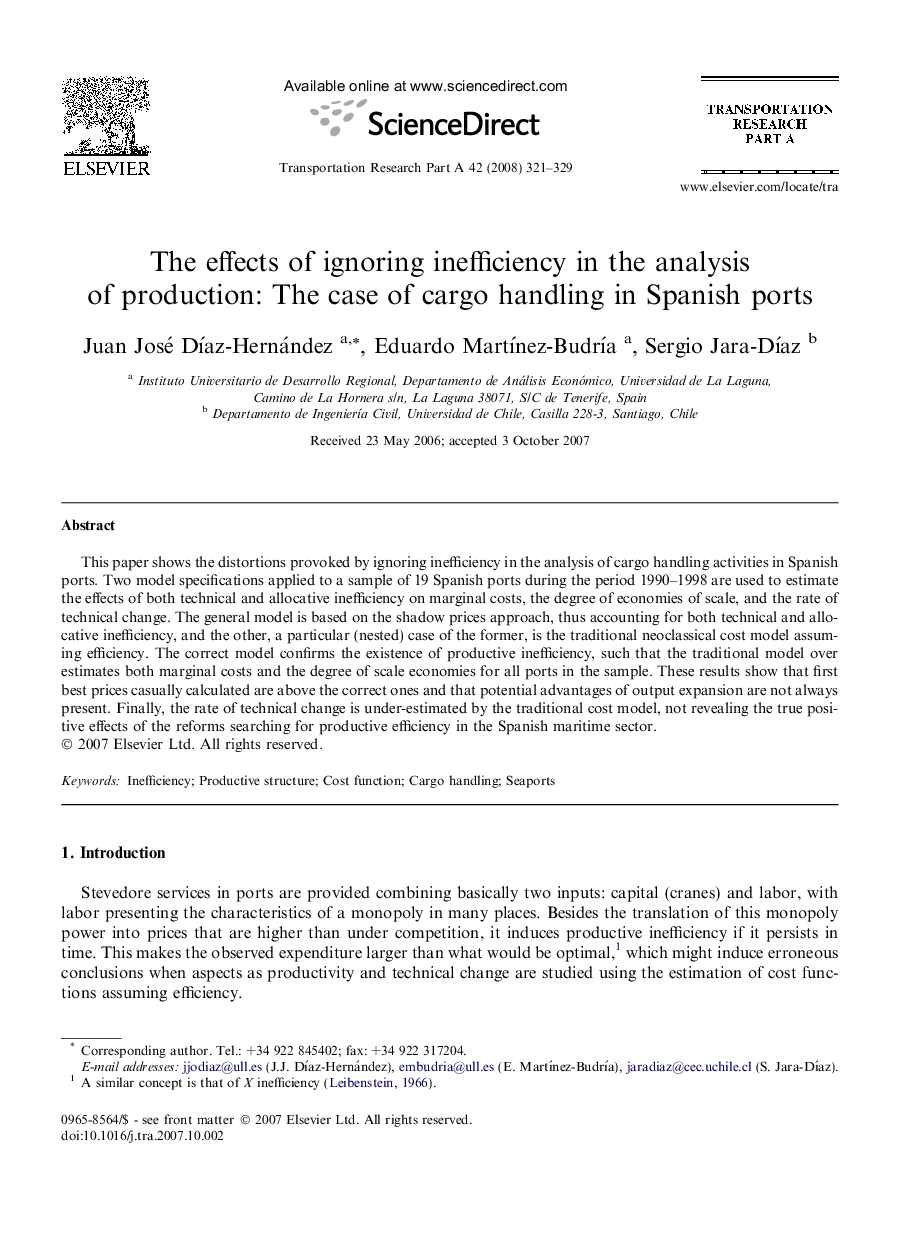| Article ID | Journal | Published Year | Pages | File Type |
|---|---|---|---|---|
| 311411 | Transportation Research Part A: Policy and Practice | 2008 | 9 Pages |
This paper shows the distortions provoked by ignoring inefficiency in the analysis of cargo handling activities in Spanish ports. Two model specifications applied to a sample of 19 Spanish ports during the period 1990–1998 are used to estimate the effects of both technical and allocative inefficiency on marginal costs, the degree of economies of scale, and the rate of technical change. The general model is based on the shadow prices approach, thus accounting for both technical and allocative inefficiency, and the other, a particular (nested) case of the former, is the traditional neoclassical cost model assuming efficiency. The correct model confirms the existence of productive inefficiency, such that the traditional model over estimates both marginal costs and the degree of scale economies for all ports in the sample. These results show that first best prices casually calculated are above the correct ones and that potential advantages of output expansion are not always present. Finally, the rate of technical change is under-estimated by the traditional cost model, not revealing the true positive effects of the reforms searching for productive efficiency in the Spanish maritime sector.
